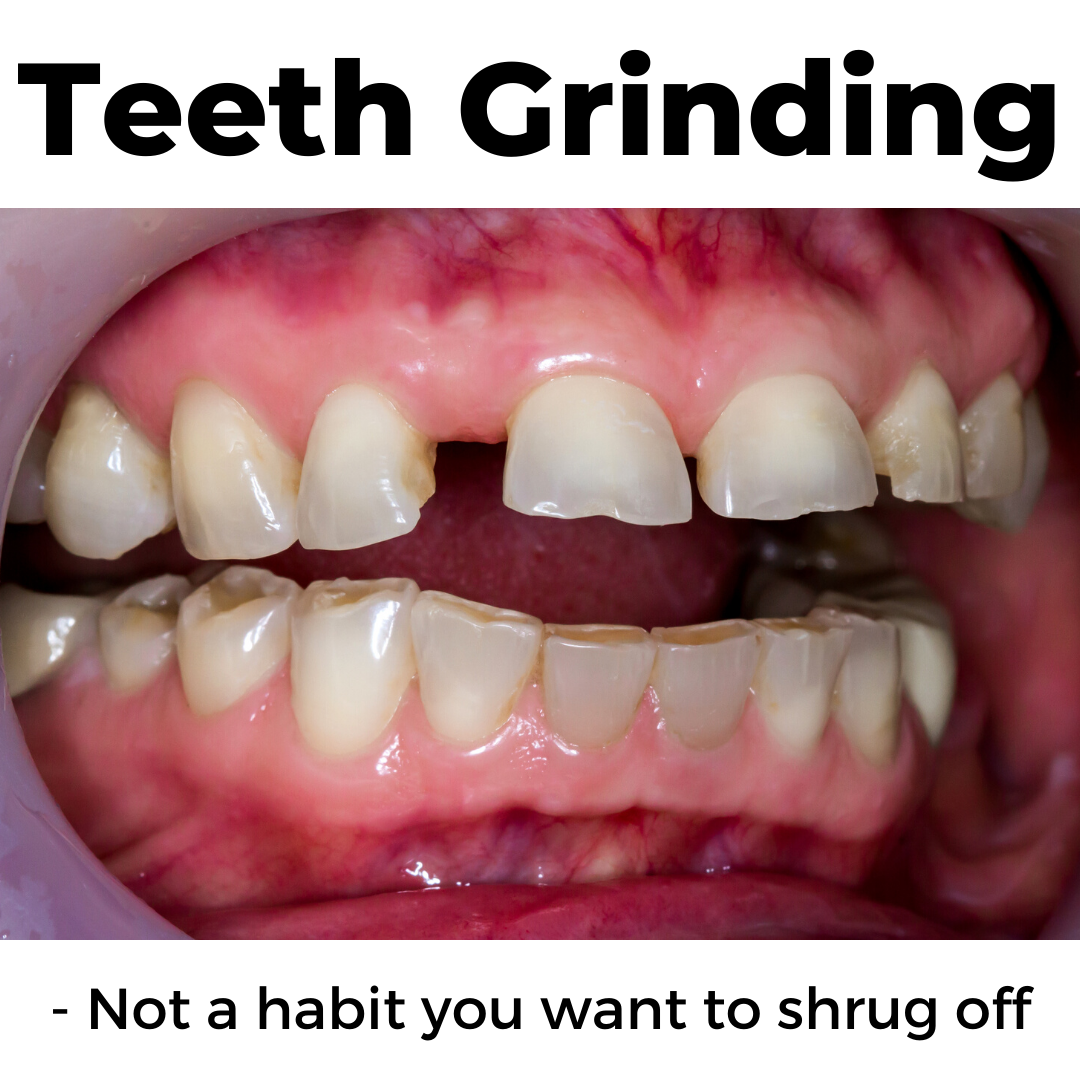It is common for people to grind/clench their teeth and jaws from time to time. However, frequent clenching and grinding can wreak havoc on your teeth!
“…So why do I grind my teeth?”
Teeth grinding and clenching of the jaw can be stress related, but it often occurs due to an abnormal bite or missing teeth. Clenching is common in stressful situations or when someone is concentrating on something.
Bruxism (teeth grinding) is often seen in patient who have a jaw joint disorder, such as TMD, or a sleep breathing disorder, like OSA.
Because teeth grinding often occurs during sleep, most people are unaware that they grind their teeth. Many people learn that they grind their teeth from a loved one who hears it. If you suspect you may be grinding your teeth, talk to your dentist. Your doctor can examine your mouth and jaw for signs of bruxism, such as jaw tenderness and abnormalities of the teeth.
“What is harmful about grinding my teeth?”
Chronic teeth grinding can lead to fracturing, loosening, or loss of teeth. People who grind their teeth often, can wear them down to stumps. When these events happen, bridges, crowns, root canals, implants, partial dentures, and even complete dentures may be needed.
Not only can severe grinding damage teeth and result in tooth loss, it can also lead to hearing loss, craniofacial pain, cause or worsen a TMJ Disorder, and even change the appearance of your face.
“What can I do to kick my grinding habit?”
You can ask your dentist to fit you for a mouth guard, which will protect your teeth during sleep. It is important to note that any generic oral appliance combined with a TMJ Disorder can affect the structure of your mouth adversely, making your situation worse.
Dr. Wenrick recommends a custom fitted orthotic appliance from a doctor who specializes in the diagnosis and treatment of TMJ Disorders or Sleep Disorders
If you are grinding your teeth due to stress, ask your doctor or dentist about options to reduce your stress.
Other tips to reduce how often you grind your teeth:
- – Avoid or cut back on foods and drinks that contain caffeine
- – Avoid drinking alcohol, teeth grinding tends to intensify after alcohol consumption
- – Do not chew on pencils or pens, or anything that is not food
- – Avoid chewing gum, as it allows your jaw muscles to get more used to clenching
Train yourself not to clench or grind your teeth: If you notice that you clench or grind during the day, position the tip of your tongue between your teeth. This practice trains your jaw muscles to relax.
Dr. Wenrick’s Recommendation
If you have a problem with clenching and grinding, first it is important to figure out why. Have you always done this or has it just started? Do you have any symptoms of a TMJ Disorder or Sleep Disorder? Make it a point to figure out why you grind and clench, then take the appropriate measures to prevent further damage to your teeth.
If you would like more information on treatment for teeth grinding, please call us at 931-551-3351.
